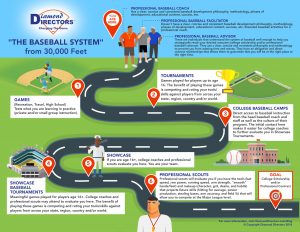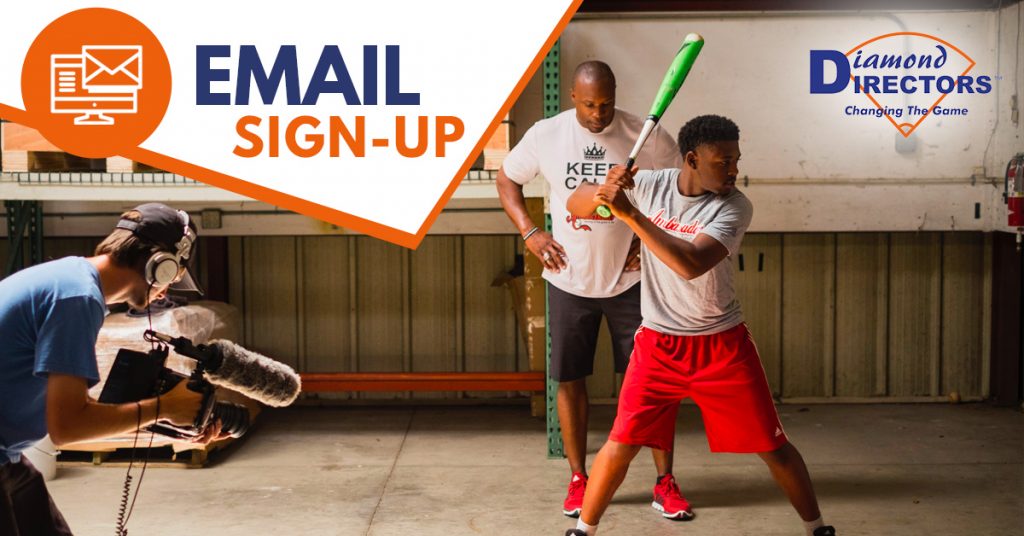 The baseball development industry is both fragmented (separated) and convoluted (complex and difficult to follow). Fragmentation and convolution keeps many coaches relevant. The perception is that we are the chief sources of development.
The baseball development industry is both fragmented (separated) and convoluted (complex and difficult to follow). Fragmentation and convolution keeps many coaches relevant. The perception is that we are the chief sources of development.
The losers are the players and parents. Playing baseball is indeed complex, but it doesn’t have to be complicated. If you’re spending your time with the right person at the right time, it will all work out.
Below, I will describe three key people who are involved in the development of amateur and professional baseball players. For the sake of integrity and the avoidance of confusion, “coaches” have an unashamed obligation to properly establish their role in the baseball development process. Professional baseball coaches, facilitators and advisors aren’t the same. It’s just like apples, oranges and pineapples are fruits, but not the same kind.
Remember – you can’t make an apple pie with an orange.
Professional Baseball Coach
Has a clear, concise and consistent baseball development philosophy, methodology, phases of development, educational content and success, etc.
C.J. Stewart, Celebrity Baseball Swing Coach, Atlanta Braves scout
1. As a professional baseball coach, what’s your philosophy?
Games prepare you for your next practice, and practices prepare you for your next game.
2. As a professional baseball coach, what’s your methodology?
My development method is ATBATS:
- A – Assessment
- T – Training for strength
- B – Basics
- A – Approach
- T –Training for skill
- S – Situational hitting
3. As a professional baseball coach, what are the phases of development that your clients matriculate through?
- August-October – Assessment
- November-January – Build habits and strength
- February-April – Convert habits to skill
- May-July – Maintenance
4. As a professional baseball coach, what are the standards your clients must uphold?
My clients must focus on the development of four H’s:
- As a professional baseball coach, what are the standards your clients must uphold?
My clients must focus on the development of four H’s:Habits –your character - Heart – your desire and grit
- Head – your knowledge
- Hands – productive at bats
5. As a professional baseball coach, what is the expectation your clients must uphold?
I expect my clients to possess three S’s, which help in the development of the four aforementioned 4 H’s:
- Self-confidence – I know that I’m capable of doing what’s expected of me
- Simple – I know how to do what’s expected of me
- Speed – I will continue to do what’s expected of me
6. As a professional baseball coach, what is the accountability you uphold if/when your clients don’t meet the standards and expectations?
If my clients can’t uphold my standards and expectations, we will no longer have a coach/client relationship. But we can be cordial.
Professional Baseball Facilitator
Doesn’t have a clear, concise and consistent baseball development philosophy, methodology, phases of development, educational content, success, etc. Executes baseball activities for a professional coach.
Rodney Tolbert, former student-athlete (baseball), Kennesaw State University
1. As a professional baseball facilitator, what’s your philosophy?
Giving young men an opportunity to grow into productive citizens, while also helping them develop a deep passion and respect for the game of baseball.
2. As a professional baseball facilitator, what’s your methodology?
NA
3. As a professional baseball facilitator, what are the phases of development your clients matriculate through?
- Assessment
- Find a focus
- Plan how to attack focus
- Assess progress
4. As a professional baseball facilitator, what is the standards that your clients must uphold?
Players must be able to understand basic baseball terminology. They must be able to apply knowledge learned in previous lessons.
5. As a professional baseball facilitator, what are the expectations your clients must uphold?
- Develop as a person
- Develop baseball skills
- Be coachable
6. As a professional baseball facilitator, what is the accountability you uphold if/when your clients don’t meet the standards and expectations?
NA
Professional Baseball Advisor
These are individuals who understand the system of baseball well enough to help you strategically reach your desired outcome (college scholarship and/or professional baseball contract). They use a clear, concise and consistent philosophy and methodology to prevent you from wasting time and money. They have an obligation and direct relationship that allows you to be at the right place at the right time.
Jim Lovejoy, General Manager, East Cobb Patriots
1. As a professional advisor, what’s your philosophy?
To assist our players to use their baseball skills to get the best education possible.
2. As a professional advisor, what’s your methodology?
To lead the player to an awareness of the academic and athletic levels he must achieve to become a college baseball player at a school he wants to go to.
3. As a professional advisor, what are the phases of development that your players matriculate through?
NA
4. As a professional advisor, what is the standards that your players must uphold?
Maintain a 3.0 GPA or better in core subjects. Conforming to our behavior rules. Working on his athletic skills until his skills are at the college level.
5. As a professional advisor, what are the expectations your players must uphold?
Maintain 3.0 or better core GPA, score at least a 25 on the ACT or 1000 on the ACT, run a sub-7.60, throw in the low 80s or better, hit in the top 10 percent of high school hitters.
6. As a professional advisor, what is the accountability you uphold if/when your players don’t meet the standards and expectations?
Players who do not meet our grade standard or behavior standard cannot play. Players who do not achieve the athletic skills necessary to play college baseball usually are not chosen to play college ball by college coaches.
Remember: Intelligence trumps being smart.
For more information, visit www.diamonddirectors.com today. Also, check out our Digital Magazine.
BIO
C.J. Stewart has built a reputation as one of the leading professional hitting instructors in the country. He is a former professional baseball player in the Chicago Cubs organization and has also served as an area scout for the Cincinnati Reds. As founder and CEO of Diamond Directors Player Development, CJ has more than 12 years of player development experience and has built an impressive list of clients, including some of the top young prospects in baseball today. If your desire is to change your game for the better, C.J. Stewart has a proven system of development and track record of success that can work for you.

Leave a Reply